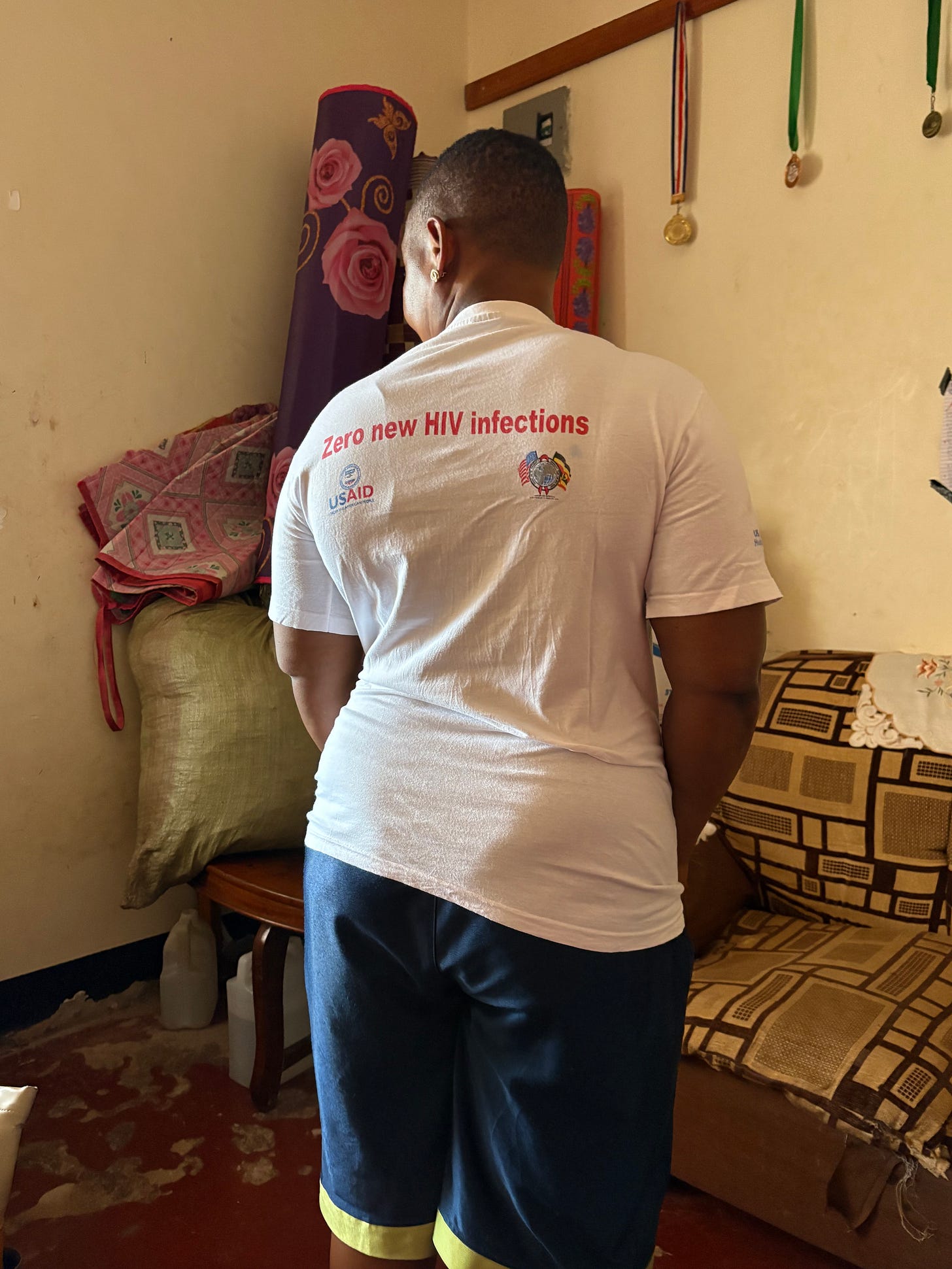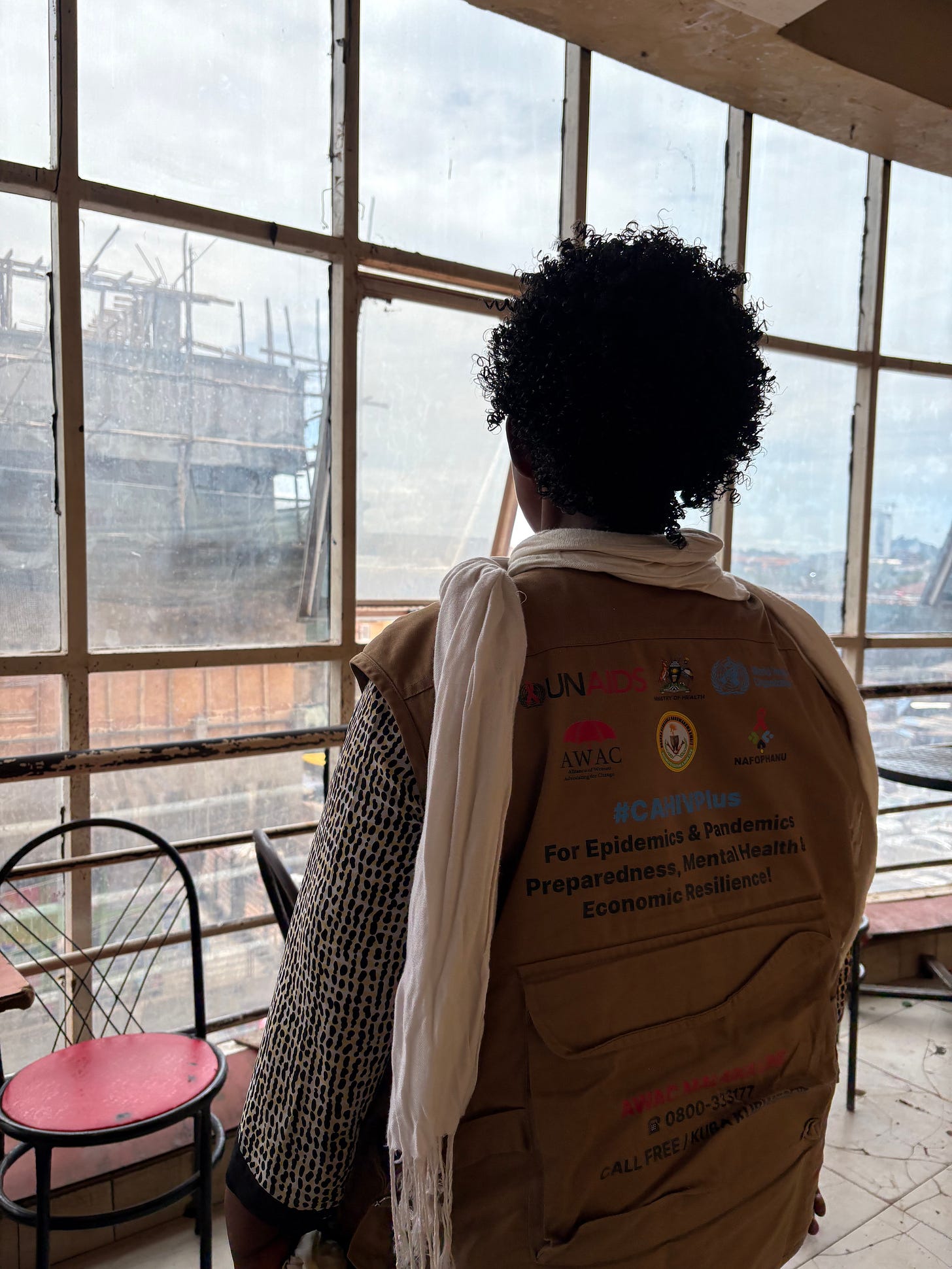I am launching this newsletter, Forsaken, on the day congressional authorization for the President’s Emergency Plan for AIDS Relief expires.
This is less dire than it seems. The program, responsible for sustaining life-saving HIV treatment for millions of people, is written into U.S. law. It has funding at least through September. It will not suddenly disappear.
That does not mean PEPFAR, a program that has saved 26 million lives, is secure.

We are now two months past President Trump’s order temporarily halting all U.S. aid, including PEPFAR. The result was an immediate crisis in countries where the program is ingrained in every aspect of their HIV response. The Trump administration has exacerbated this chaos in the subsequent weeks by haphazardly allowing the resumption of some services while erasing others completely.
I write this from Uganda, where the two agencies responsible for ferrying medicines and supplies from warehouses to clinics had their PEPFAR contracts canceled. The Ugandan government cannot quickly take responsibility for delivering drugs it did not buy and cannot afford to purchase more, so health facilities are now watching their supplies dwindle. I spoke to a counselor at an HIV clinic in the country’s east who ran out of HIV testing kits last week. Treatment could soon follow.
Not only that. Her clinic, which supports nearly 2,700 people, has no funding to organize its twice-weekly community outreach. They no longer offer circumcisions, a proven method for reducing HIV infections. The health worker I spoke to has not even been paid for more than a month.
Her clients are running out of faith in the clinic.
“They say we are going to kill them. Why did we start with them, yet we are not stable?”
Washington can claim it has allowed life-saving treatment to resume, but the reality is that U.S. officials have sown disorder. Their reckless handling threatens to collapse the complex system that PEPFAR has helped build over the past 22 years.
It seems unlikely the Trump regime cares.
A memo, reportedly written by Trump aides, leaked last week. It lays out of a vision of international assistance “aligned with both American national security and economic priorities and global geopolitical goals.” Aid is now self-serving, its purpose to make America “safer, stronger and more prosperous.” Washington is no longer in the business of exporting a progressive vision of rights or even looking for aid to whitewash its sins.
PEPFAR goes largely unaddressed in this document, though it is possible to read the memo’s vision into the hollowed-out version of the program that currently exists. Preventing HIV transmission in Uganda or supporting vulnerable groups here, like gay men and sex workers, does not fit within the administration’s geopolitical goals. They are no longer seen to aid American prosperity or security. So those programs are eliminated.
It’s worth remembering that even HIV treatment wasn’t included in the first exemptions to the freeze on federal aid. That was enough to offend some Republican lawmakers. Sources say their behind-the-scenes lobbying may have compelled the resumption of limited services.
To the Trump administration, PEPFAR is not a partnership but a program it can whipsaw around at will. There is no sense of obligation to the people who rely on its services. Even less to the tens of thousands around the world who have dedicated themselves to the work of sustaining the program over the past 22 years.
These are people like Racheal M., a 48-year-old sex worker based in downtown Kampala, Uganda’s capital. She is a no-nonsense type, who organizes meetings with her colleagues several times a month to discuss the importance of HIV prevention and treatment services. She then escorts anyone who is interested to a nearby clinic for testing. If they are infected, she urges them to start treatment. If negative, she explains about the daily pill they can take to prevent infection. Once they are enrolled, their name and refill date go down in her notebook.
She combs through the dozens of names each morning, calling anyone who has an appointment approaching. She’ll often tell them not to worry. She can pick up the refill and bring it to them.
Racheal does this because she believed that PEPFAR was supposed to be a partnership.
“I’m needed, because they know me as a fellow female sex worker and a friend,” she explains. “They will give me attention and do whatever I request them to do.”
No matter that it requires dozens of virtually unpaid hours from her each week. If Washington was willing to provide the funds, she would make whatever sacrifice was needed to put that money to its best use. If U.S. officials wanted to take the credit, fine by her. It was her community that was truly benefiting in lives saved.
The abrupt and ongoing disruption of PEPFAR services is a betrayal. It is the forsaking not just of the many millions of people in Africa and elsewhere who depend on American funds for their life-saving services, but of the tens of thousands more, like Racheal, who offered their scant resources to help get people on treatment or prevent them from getting infected in the first place.
With this newsletter, I am looking to document the Trump administration’s overhaul of PEPFAR through the experience of the people, like Racheal, it is impacting the most. Thanks to a generous fellowship from the Alicia Patterson Foundation, I have the resources to embed myself in PEPFAR-supported countries and gather those experiences over the coming months.
I believe it is critical that some effort is made to catalogue the harm being done. To hold this reality up against attempts to elide or misrepresent the impact of Washington’s actions. And to report on the new future people are beginning to envision for an HIV response that is no longer grounded in the promise of PEPFAR.






